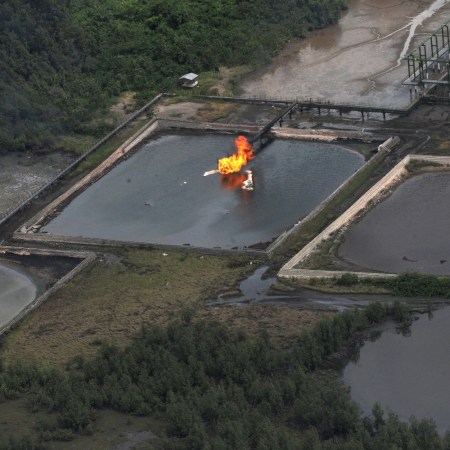So how about those rising sea levels?
Not a topic concern for you personally, maybe. But certainly a top concern for the Union of Concerned Scientists, who this month released a rather terrifying report that reveals which coastal communities will be submerged in water by 2100 as a result of man-induced climate change.
The interactive map is a companion to their peer-reviewed report, When Rising Seas Hit Home. In the report, we see not only which littoral areas will be swallowed by the ocean, but also which communities will be regularly inundated by flooding at least 26 days out of the year.
Imagine: that means for nearly one month of the year, people will have to wade through water. Cars and homes will need repairs to combat salt and water damage. Insurance claims will be filed. Work will be missed. People will be stressed.
From the map: “In this scenario, global warming is limited to less than 2 degrees Celsius above pre-industrial levels, ice sheets melt more slowly, and sea levels rise less rapidly. By 2100, seas rise by 1.6 feet globally.”
Some of you may deny that climate change is manmade. But, you are in the minority, as nearly 70 percent of Americans think that climate change is real, manmade and a threat to humanity.
However, most of those people (Boomers and Gen X-ers) don’t believe that they’ll feel these effects in their lifetime. In terms of rising seas, the map indicates that they’re correct; most of the flooding will not really take effect until 2065. Most Boomers will have passed and most Gen X-ers will be en route to the retirement community (hopefully somewhere inland).
So what can be done? The report both outlines what communities can do as well as which communities are already doing it. Miami has built some of the best water pumping systems in the world, despite the fact that the governor has outlawed the term climate change from official documents.
The scientists behind this report suggest that the nearly 400 at-risk communities could avoid rising tides if they band together and we as a country tackle climate change and agree to the Paris Climate Agreement.
Hm. Better get started, somehow?
Photo by Andrew Renneisen/Getty Images
This article was featured in the InsideHook newsletter. Sign up now.




















